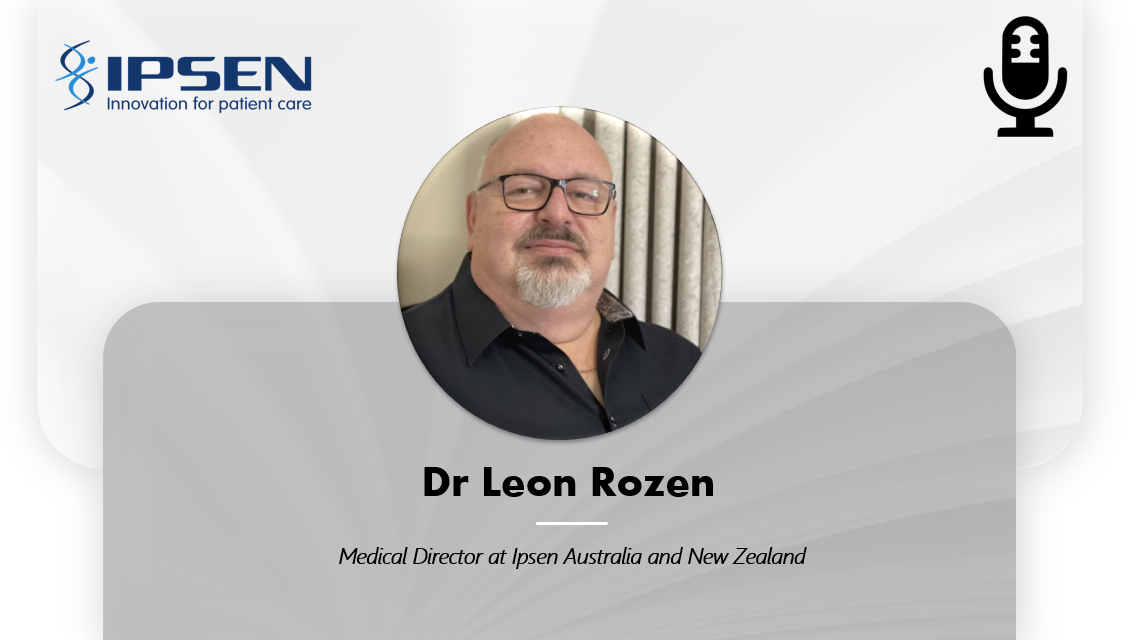Medical
The changing face of Medical Affairs from a support function to a strategic partner

Medical News: The Medical Affairs function within pharmaceutical companies has evolved over recent years from a support, to a partner, to a strategic leadership function.
On his return to Australia from an international posting, Dr Leon Rozen has been appointed the new Medical Director at Ipsen Australia and New Zealand.
In a recent interview with Health Industry Hub, Dr Rozen discussed how the Medical Affairs function has adapted to meet key stakeholder needs during the COVID-19 pandemic, the disrupted ecosystem that is ripe for innovation, and the evolution of the function in the next five years.
Health Industry Hub: With a global perspective in mind, how has the Medical Affairs function adapted and evolved to meet internal and external stakeholder needs during the COVID-19 pandemic?
Dr Leon Rozen: Prior to the COVID-19 pandemic we were heading for change. For example, from a global perspective, we were looking at virtual Advisory Boards to improve efficiencies and compliance requirements. What COVID did was really accelerate the ability to do it and the learning curve on how to do it.
With virtual, there is the ability to have the mindset to do things asynchronously where people participate in meetings in their own time. While the tech savvy key opinion leaders saw the advantages of it quickly, others were forced to actually learn by breaking down big barriers.
Internally, one of the key challenges was onboarding. A new employee usually meets team members, is exposed to onboarding information and SOPs in person. It was less of a challenge for MSLs who work remotely on a regular basis. Whilst I think video calls assist in building rapport and relationships, nothing beats face to face onboarding and training of a new employee.
Another challenge was in relation to internal meetings. How do you make sure people participate, are involved and engaged, especially during long meetings? Comparatively, in a face to face meeting, you can actually ask people to shut their computers for the duration of the meeting.
Networking has also become a real challenge. Let’s face it, whether you were in the office, at a conference or congress, a lot of discussions and agreements occurred offline and informally. The chat and instant message functions or texting do not have the same outcomes.
For many employees being at home meant that there was no barrier between work and home. I think people ended up working more and it was tough. It has been a big learning curve for organisations and their employees.
Health Industry Hub: The pandemic has forced Medical Affairs teams (including MSLs) to change the norms of interactions with healthcare professionals (HCPs). What is the current state of medical engagement, specifically in relation to HCP needs and preferences?
Dr Rozen: HCPs still want quality interactions where there is clear value in that interaction for them.
What we have seen is that the life of HCPs has changed. They are now doing telemedicine which is a whole new learning experience for them. It has changed the way they think about things and the way they work.
The HCP time is becoming more and more precious. With lots of changes happening during the pandemic, HCPs still want MSL and medical affairs interactions, but maybe not as often. They want quality as opposed to quantity.
It will become a hybrid interaction model moving forward where some HCPs will continue face to face, others will prefer a combination of face to face and virtual, and some will opt for virtual only. I do not believe you can have a complete relationship without some face to face interaction.
I am a big believer in soft skills and training people in how to communicate. It is another set of skills when you are communicating virtually. For experienced MSLs, who already have the relationships, it is going to be easier. For new MSLs coming in and trying to develop those relationships, when all you have is virtual, it will be a real challenge.
Health Industry Hub: Is this disrupted ecosystem ripe for innovation?
Dr Rozen: In reflecting on my international experience, there are companies who specialise in HCP social listening in the US. That is where I see things changing rapidly. Bringing all that data together from the different social channels and informing the company on how HCPs are communicating or thinking about specific topics, what their preferences are and how to leverage the data. This is where I really see the role of artificial intelligence (AI) being of benefit.
Health Industry Hub: What does the near future hold for HCP interactions driven by MSL teams in comparison to sales teams?
Dr Rozen: The future is really about what the industry is becoming. The emergence of highly specialised and complex products is the reason for the shift in discussions. The other aspect is compliance and who can talk what. That has really driven MSL engagement.
At a recent Australian Pharmaceutical medical and scientific Professionals Association (APPA) meeting, HCPs discussed how they really value the scientific discussions but ‘turn off’ as soon as they think someone is coming into sell. The ability to have the two-way conversation, educate and communicate, but also bring actionable insights back into the organisation is of extreme value.
Therefore, we are moving towards a wider MSLs engagement and sales teams will get smaller. We will start to see more of an account management role as opposed to sales, especially as pricing and value also become much more important.
Health Industry Hub: How do you see the role of the Medical Affairs function evolving in the next 5 years?
Dr Rozen: Medical Affairs has already evolved from being a support function aligning with the commercial team to being a strategic partner within the organisation. In some areas Medical Affairs should in fact be co-leading the brand team with commercial colleagues, for example, in oncology and personalised medicine.
The other opportunity for Medical Affairs is being patient-centric and considering how patients are receiving the best care and the best education. This is where AI and technology comes in. We need to ask ourselves, how can we innovate better?
Medical Affairs is shifting the mindset to think science and an unmet medical need first, and then ask whether the therapy is commercially viable.
About Dr Leon Rozen
Dr Leon Rozen brings decades of experience and knowledge having held senior positions in Asia Pacific, Europe, and the USA with BMS, and Baxalta/Shire. Dr Rozen joined Ipsen Australia and New Zealand in July 2021 from his most recent role as Global Medical Oncology Lead for Solid Tumors at Abbvie.
Digital & Innovation

Medical drone to reduce health equity gaps in rural and remote Australia
A specialised medical drone which increases accessibility to essential health services such as pathology, medicines, and telehealth services in rural […]
MoreNews & Trends - Pharmaceuticals

We’ve spent more on healthcare, but it’s been worth it
Healthcare expenditure is surging, with Australia now allocating approximately one-tenth of its budget to this sector. This financial uptick prompts […]
MoreNews & Trends - Pharmaceuticals

New partnership to raise the bar in precision oncology in Queensland
Pharma News: The Australian Translational Genomics Centre (ATGC) is teaming up with non-profit research organisation Omico and the PrOSPeCT program […]
MoreNews & Trends - Biotechnology

AusBiotech appoints new CEO: Former Sanofi corporate affairs and sustainability leader takes the helm
Biotech News: AusBiotech, the nation’s leading industry body for the biotech sector, has named former leader at Sanofi, Rebekah Cassidy, […]
More